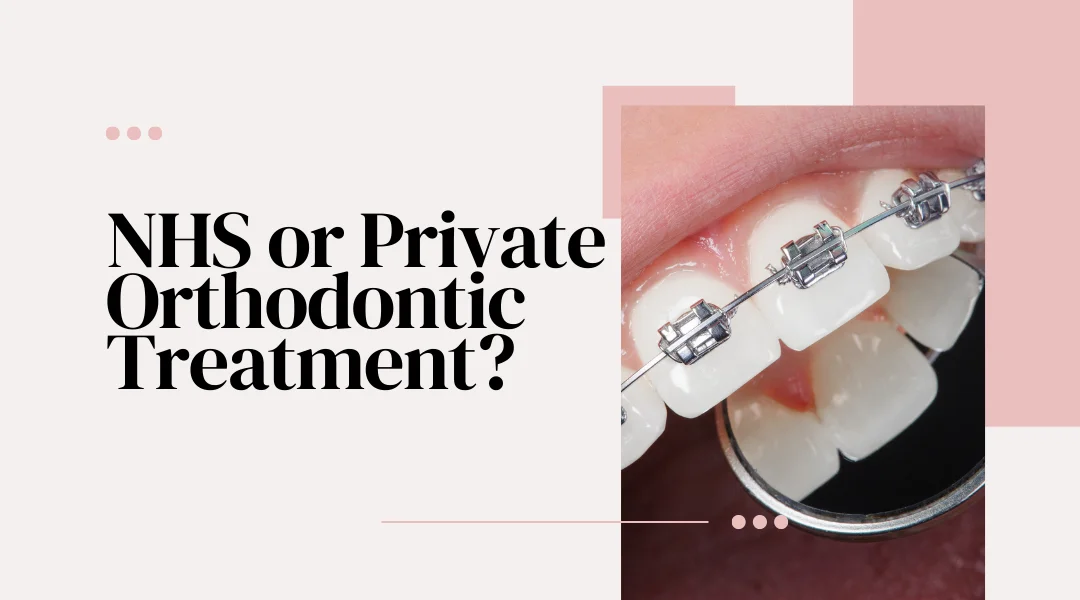When you’re weighing the options between NHS and private orthodontic treatment for your child, it’s crucial to consider several factors that can impact both their care and your peace of mind. NHS treatment provides reliable, high-quality care with established protocols, while private options often boast more advanced technologies and tailored experiences. However, the choice isn’t simply about cost or convenience; it also involves understanding your child’s specific needs. What if the best fit for your family lies in an unexpected area? Exploring the nuances of each option might just reveal the answer you’re looking for.
Overview of Orthodontic Options
When considering your child’s orthodontic treatment options, it’s important to understand the various methods available to achieve a healthy, aligned smile. Your involvement as a parent is crucial in treatment planning, ensuring you choose the best option for your child’s age suitability and specific dental needs. Options include traditional metal braces, ceramic braces, and clear aligners, each with different maintenance requirements.
For instance, clear aligners may require less frequent visits, while traditional braces may need more monitoring. Understanding the potential treatment outcomes for each method helps you make an informed decision. Ultimately, a well-planned approach, combined with your active participation, can lead to a successful orthodontic experience and a confident smile for your child.
Benefits of NHS Treatment
While exploring orthodontic options for your child, you might find that NHS treatment offers several significant benefits worth considering. One of the key advantages is the high treatment quality; NHS orthodontics adhere to strict standards, ensuring your child receives effective care.
Additionally, waiting times for appointments can be shorter compared to private practices, allowing for timely intervention.
The patient experience in NHS settings often emphasizes comprehensive assessments, giving you various treatment options tailored to your child’s needs. Moreover, NHS treatment ensures long-term care, with follow-up appointments included in the service.
This integrated approach not only addresses immediate orthodontic concerns but also supports your child’s ongoing dental health, providing peace of mind for you as a parent.
Advantages of Private Treatment
Private orthodontic treatment often provides families with greater flexibility and personalized options for their child’s care. You’ll benefit from a tailored approach that focuses on your child’s unique dental needs.
With private care, you can expect faster results, as treatment plans are often shorter due to fewer patients and more dedicated time from your orthodontist. Advanced technology, like 3D imaging and clear aligners, enhances the treatment experience, ensuring comfort and effectiveness.
Additionally, private options often prioritize enhanced aesthetics, allowing your child to achieve a beautiful smile without the bulk of traditional braces.
Cost Comparison
Understanding the cost differences between NHS and private orthodontic treatment is crucial for making an informed decision for your child. The affordability comparison shows that NHS treatment is generally lower in cost, often covered by standard insurance plans. However, private options may offer better treatment quality, which can justify the higher price.
In terms of waiting times comparison, NHS appointments can have long delays, while private clinics often provide quicker access. Additionally, private practices usually offer flexible payment options, allowing you to spread costs over time.
Weigh these factors carefully, as the right choice balances immediate affordability with the overall value of the treatment your child receives.
Treatment Duration and Flexibility
Choosing the right orthodontic treatment for your child involves considering both treatment duration and flexibility. With private orthodontics, you often have a range of treatment options that can expedite progress, reducing the overall time your child needs braces.
You’ll enjoy more flexible appointment scheduling, allowing you to choose times that fit your family’s busy life. Additionally, private practices may offer tailored payment plans, making it easier to manage costs throughout the treatment.
NHS options, while effective, sometimes involve longer wait times and less flexibility in follow-up care. Ultimately, understanding these factors will help you make a well-informed decision that suits your child’s needs and your family’s lifestyle.
Access to Specialists
Access to specialists can significantly enhance your child’s orthodontic experience and outcomes. When you opt for private orthodontic treatment, you’ll likely encounter professionals with specialized expertise, ensuring high treatment quality tailored to your child’s unique needs. This access often translates to shorter waiting times for consultations and procedures, allowing for a more streamlined experience.
Moreover, specialists can offer a broader range of treatment options, from traditional braces to cutting-edge aligners. In the long term, having a specialist involved can lead to better monitoring and care, ensuring that your child’s orthodontic journey remains on track.
Ultimately, choosing the right path means considering how specialist access can contribute to your child’s overall dental health and satisfaction.
Making the Right Choice
When it comes to selecting the best orthodontic treatment for your child, numerous factors play a crucial role in making the right choice.
First, consider your level of parental involvement; being engaged can significantly influence treatment outcomes.
Evaluate the options’ impact on patient comfort—some treatments may be less intrusive and more pleasant for your child.
Think about the long-term benefits as well; private treatments often offer faster results and more advanced technology.
Also, assess the maintenance requirements of each option; ensure you can commit to follow-up visits and care.
Ultimately, weigh these factors carefully to ensure you choose an orthodontic path that aligns with your family’s needs and priorities.
Frequently Asked Questions
What Types of Braces Are Available for Children?
When considering braces for your child, you’ll find options like metal braces, ceramic braces, lingual braces, and Invisalign for kids. Don’t forget to prioritize retainer care for maintaining their beautiful smile post-treatment.
Can My Child Receive Orthodontic Treatment at Any Age?
Your child can receive orthodontic treatment at various ages. Early intervention often offers better options. Consider age suitability for effective treatment timelines, ensuring long-term benefits for their smile and dental health as they grow.
How Can I Support My Child During Treatment?
You can support your child during treatment by staying involved, offering emotional support, and encouraging open communication. Monitor their treatment progress, and emphasize the importance of maintaining good oral hygiene throughout the process.
Are There Any Dietary Restrictions During Orthodontic Treatment?
During orthodontic treatment, you’ll face food restrictions. Avoid hard, sticky foods that can damage braces. Ensure your child understands age eligibility for retainers and regularly replace them, following parental guidance for optimal results.
What Happens if My Child Loses a Retainer?
If your child loses a retainer, act quickly. Schedule a replacement appointment, practice proper retainer care, and discuss retainer costs. Encouraging preventive measures helps avoid orthodontic emergencies and ensures effective treatment continuity.
Conclusion
Ultimately, the choice between NHS and private orthodontic treatment for your child at Kidsgrove Dental & Implant Centre hinges on their unique needs. NHS treatment offers high-quality care with shorter waiting times and comprehensive assessments. Conversely, private treatment provides flexibility and advanced options like clear aligners. By weighing the benefits, costs, and your child’s preferences, you can make an informed decision that ensures the best possible outcome for their orthodontic journey.
Contact:
Dr. Gary Wu
Kidsgrove Dental & Implant Centre
79 Liverpool Rd, Kidsgrove, Stoke-on-Trent ST7 4EW, United Kingdom
Phone: +44 1782 782520
Email: admin@kidsgrovedental.com
Website: www.kidsgrovedental.com
Opening Hours:
Monday, Tuesday, Thursday: 9am – 5pm
Wednesday: 9am – 7pm
Friday: 9am – 4pm
Closed on weekends and bank holidays

Karen Altizer is a seasoned professional with a wealth of expertise in marketing and communications, adept at crafting compelling narratives and strategic messages tailored to various stakeholders.

